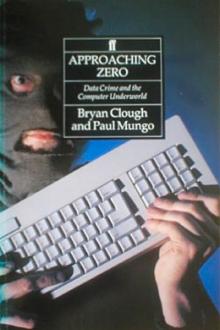The Kidnap Years: by David Stout (popular books of all time TXT) 📗

- Author: David Stout
Book online «The Kidnap Years: by David Stout (popular books of all time TXT) 📗». Author David Stout
*This quote and others by Arthur Koehler are from his article “Who Made That Ladder?” in the Saturday Evening Post of April 20, 1935.
**The holiday was still celebrated then on the last Thursday in November, not the fourth Thursday.
CHAPTER SEVENTEEN
STRICTLY BUSINESS
St. Paul, Minnesota
Thursday, June 30, 1932
If he had time to look at the morning paper, young Haskell Bohn saw an abundance of news about politics.
Governor Franklin D. Roosevelt of New York had a plane standing by in Albany to fly him to Chicago, assuming he was nominated for president at the Democratic National Convention, as seemed likely. Roosevelt’s aides said that, with stopovers, the flight would take some seven hours. If Roosevelt alighted looking cheerful and energetic, there ought to be no more whispers that he suffered from physical infirmities that would make it difficult for him to fulfill the duties of the presidency. One thing was already clear at the convention: there was overwhelming support among the delegates for repeal of Prohibition and, pending that, for legalizing the manufacture and sale of beer. Surely, that would boost sales of refrigerators, which was definitely good news for Haskell Bohn and the family-owned Bohn Refrigerator Company.
Haskell’s grandfather, Gebhard Bohn, had come to America from Germany in the nineteenth century, lacking money, fluency in English, and social polish. But he was blessed with enormous drive, business and mechanical skills, and perhaps a touch of genius. He worked hard at menial jobs, tinkering to great effect in his spare time, and settled in St. Paul.
He and two brothers started a company that sold window parts, furniture, and other household goods. But Gebhard saw the future coming, and it was called refrigeration. Before his death in 1924, he had invented a refrigerator far more efficient than most others at the time, one that was eventually used in nearly all railroad dining cars in the country.
His son, Gebhard C. Bohn, was also a visionary, unlike some sons of business pioneers. The younger Gebhard decided that the company founded by his father should concentrate entirely on refrigeration. He saw that the old-fashioned kitchen ice box belonged to the past. Every family would want an electric refrigerator. Nor would the appliance be a luxury; after all, dining out was unaffordable for many families. It was essential that store-bought food last as long as possible.
Restaurants, country clubs, flower shops—all needed refrigeration. There was a huge and growing market, and the Bohn enterprise captured much of it. Having caught the wave of the future, having helped to create the wave, the Bohn family was very wealthy during the Great Depression.
There was another recent development that had been covered rather modestly in the newspapers, considering its importance. Eight days earlier, President Herbert Hoover had signed the federal anti-kidnapping law—the Lindbergh Law, as it came to be known. Its chief sponsors, Senator Roscoe Conkling Patterson, a Missouri Republican, and Representative John Joseph Cochran, a Democrat from St. Louis, were understandably tired of the kidnappings in their state. The young Adolphus Busch Orthwein, the noted eye doctor Isaac Kelley, the daring dressmaker Nell Donnelly—those were only the most noteworthy victims in Missouri in recent months. There had been others not quite famous enough to get national attention.
And of course, the Lindbergh tragedy had made it impossible for Congress not to do something before fleeing the sweltering heat of the Washington summer.
There had been differences between the House and Senate versions of the law, with the House version providing for the death penalty for someone convicted of transporting a victim across state borders unless the jury recommended mercy.
Under the Senate version, the maximum punishment was life in prison. Supporters of the Senate version argued that subjecting a kidnapper to a death sentence could encourage him to kill his victim so the victim couldn’t testify against him.
In the end, the Senate version won the day, with life in prison the maximum sentence for transporting a victim across state lines.* On June 17, the House unanimously approved the Senate version, which had been approved on June 8. (There was nothing in the final bill to prevent a kidnapper from being sentenced to death under state law if a victim was killed in a state that had the death penalty.)
Importantly, the law provided for a seven-day waiting period before federal investigators could enter a case; in other words, if a victim was not found within that time, he or she was presumed to have been taken across state borders.
Just before 9:00 a.m. on June 30, twenty-year-old Haskell Bohn emerged from his house to be driven to work at the refrigerator plant. It was a warm day; the temperature would climb into the upper eighties by late afternoon.
As he and the family chauffeur approached the garage behind the family home, Bohn’s world turned upside down. Two men with pistols approached quickly, removed Bohn’s glasses, wrapped tape over his eyes, and led him away after giving the chauffeur a note.
Bohn was steered into a nearby alley and shoved into a car where he lay on the floor, his eyes still taped. The whole operation had taken only moments. Bohn had had no time





Comments (0)